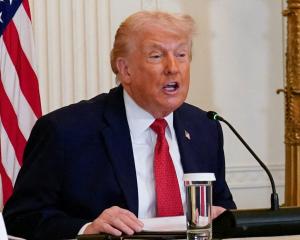The recruitment of overseas teachers to plug the chronic teacher shortage in New Zealand should invite outrage from teachers, Peter Lyons writes.
This Government could do well to actively recruit more doctors, dentists, accountants and lawyers from overseas.
This would ensure the fees of these professional groups are kept in check. It would be very beneficial for New Zealand consumers. It would also cause an uproar.
The media would be swamped with responses from these worthy professions. The most common refrain would be the need to ensure professional standards are maintained. Urgent concerns would be raised about the undermining of these professional bodies and the quality of their services.
Foreigners may not have the sufficient quality of training or expertise to ensure the maintenance of utmost standards and integrity in the quality and delivery of services. Urgent submissions would be made to select committees.
Local MP s would be swamped with pleas from professionals in their constituencies. The general public would quickly be persuaded that such a move would be detrimental to the wellbeing of our society.
Teaching is different. Unlike the professions mentioned above, teachers do not control entry into their ranks. They also seem to lack an understanding of how a labour market works. The accountants figured it out in the 1980s. A glut of eager young graduates with accounting degrees resulted in the Accounting Institute, raising entry requirements.
They understood that controlling supply is essential to maintaining pay and conditions and ensuring professional status. Of course, their stated intent was to raise professional standards. Debits and credits require the utmost integrity and expertise.
The recent moves by this Government to recruit teachers from abroad reinforces the sad and ambiguous status of teaching in New Zealand. Accountants, lawyers, doctors and dentists have long recognised this harsh reality of the labour market.
The crucial difference between a professional body and a union is often little more than astute marketing and positioning by the former.
Teacher unions often fail to appreciate this crucial difference, to the detriment of their members. Controlling entry into a profession ensures greater control over pay and conditions and status. This is a crucial hallmark of any profession.
The urgent recruitment of overseas teachers to plug the chronic teacher shortage here should invite outrage from teachers as they seek to negotiate decent pay and conditions for themselves. It directly erodes their bargaining power.
They can no longer point to a chronic shortage as a justification for decent remuneration. It further highlights the confused status of teaching in New Zealand. Politicians of all persuasions pay lip service to the status of teaching as a profession, but they are unwilling to pay much more.
The provision of urgent funding to schools to recruit teachers from abroad is a direct blow to the bargaining power of teacher unions. It should also be emphasised that while overseas recruits are willing to accept the paltry pay and conditions on offer here they are also gaining an additional bonus.
They also become eligible for residency which is often the main drawcard.
This is not to denigrate the huge contribution of overseas staff to teaching in New Zealand.
I have worked with wonderful and outstanding colleagues from abroad and remain good friends. Without the contributions of overseas staff our schooling sector would be in a much worse state than currently exists. It would long ago have become scandalous.
Our politicians would have had to vote for far better pay and conditions to ensure the recruitment and retention of high quality local candidates.
Peter Lyons teaches economics at St Peter's College in Epsom and has written several economics texts.
Comments
If Peter thinks that extra pay for teachers is going to fix the shortage issue then he needs to think again.
I’m not saying teachers are paid in line with their value, what I’m saying is the linkage between the MoE, the teachers union and our social engines have made the task totally unattractive to many.
Education is the front line in the cultural wars and the closed shop mentality of the three, is what’s widening the gap between education and the real world.
I feel for the teachers stuck in this struggle and understand why so many get out, for they have not created this situation.










